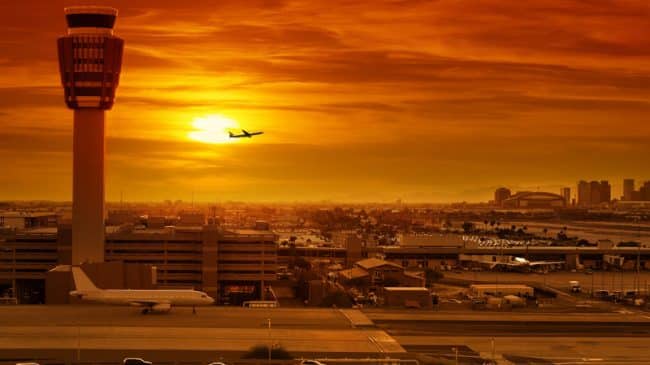Commercial airlines have resumed flying with three pages of new federal security requirements. A whole raft of new provisions – no cars within 300 feet of terminals, no curbside or hotel baggage check-in, limits on electronic tickets, detailed searches of planes before every flight – will do little or nothing to make air travel safer. Ironically, these well-intended “feel-good” measures may inadvertently achieve one of the terrorists’ goals by crippling our aviation industry.
When Wall Street reopened last Monday, airline stocks plummeted. Almost all of the major carriers have cut flight schedules. Continental plans to lay off 12,000 employees. U.S. Airways expects to cut 11,000 jobs. And this could just be the beginning. Prior to the bombings, U.S. airlines were on the way to losing $ 2.5 billion this year. Between the shutdown and the new restrictions and their impact, that number could easily double by year-end. That’s likely to mean more airlines going under, reducing the extent of competition. And less competition means higher airfares.
There’s no doubt that aviation security needs to be dramatically improved, but it can be done without destroying the airlines and affordable air travel. None of the pre-existing security measures prevented well-trained, suicidal fanatics from getting on flights with legal knives, gaining control of the cockpits, and turning the planes into manned cruise missiles.
Thus, our first priority must be making airplanes defensible. That means armed sky marshals on as many flights as possible, adding more secure cockpit doors and selectively arming crew members.
It’s on the ground where the danger of costly, but ineffective regulations is greatest. Before piling on new mandates, the present airport security system needs to be rethought. Both the General Accounting Office and the Department of Transportation inspector general have issued scathing reports on airport security.
One Federal Aviation Administration official said that Boston and Newark “leak like a sieve.” In 1999 federal agents were able to sneak through security doors 46 times at four major airports and walk around on the tarmac or board planes unchallenged.
But as these reports make clear, the biggest holes in the system are behind the scenes, not in the flow of passengers through metal detectors at screening points. And airport security should become the sole responsibility of the airport operator, not fragmented among the airport, the major airlines and numerous contractors.
Further harassing passengers with bans on curbside check-in and making them stand in endless lines despite using e-tickets has made the delays at airports much worse. Yet these measures would not have stopped the terrorists. Better technology for screening all bags and detecting even ceramic knives under people’s clothes, as well as high-tech systems for positive passenger identification, would be far more useful than inane security questions and more requirements to wait in long lines.
Sensible changes like defensible airplanes and smarter airport security will modestly raise the cost of flying, but probably by no more than a few dollars per passenger per flight. But measures of the kind proposed and instituted since this tragedy could cripple the airlines by cutting into both leisure and business travel markets.
These pointless regulations have added several hours to already long and tiring trip times. Growing numbers of business travelers will decide that’s the last straw – and make fewer airline trips. And while business travelers make up only one-third of airlines’ passengers, they pay two-thirds of all the fares.
Even worse will be the impact on what the industry calls leisure travelers – ordinary people flying to visit relatives or take vacations. The requirement that each plane receive a thorough security inspection before each flight will destroy the ability of low-fare airlines like Southwest to turn around a flight in 20 minutes. That means a 737 that now makes 10 flights per day will be able to make only seven. So today’s affordable fares will have to be raised. And there goes the ability of many families to get together for the holidays.
We must make sure that airplanes cannot be commandeered and turned into manned cruise missiles. But that can be done by making planes defensible and by taking reasonable steps to improve airport security. It does not require regulations that cripple the airlines and make flying unaffordable for ordinary Americans.
Robert W. Poole, Jr. directs the Transportation Studies Program at the Reason Foundation. He advised the White House Domestic Policy Council and several members of Congress on airport security improvements following the 9/11 terrorist attacks.
Viggo Butler recently served on the Federal Aviation Administration’s Research, Engineering & Development Advisory Committee.

